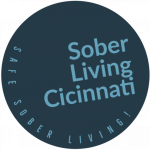Understanding Substance Use Issues: Causes and Consequences
Substance use issues affect millions of individuals and families worldwide, leading to physical, psychological, and social consequences. Understanding the root causes and effects of substance use disorders (SUDs) is crucial for prevention, treatment, and recovery. This article explores the key factors contributing to substance use issues and their impact on individuals and society. Causes of […]
Understanding Substance Use Issues: Causes and Consequences Read More »









